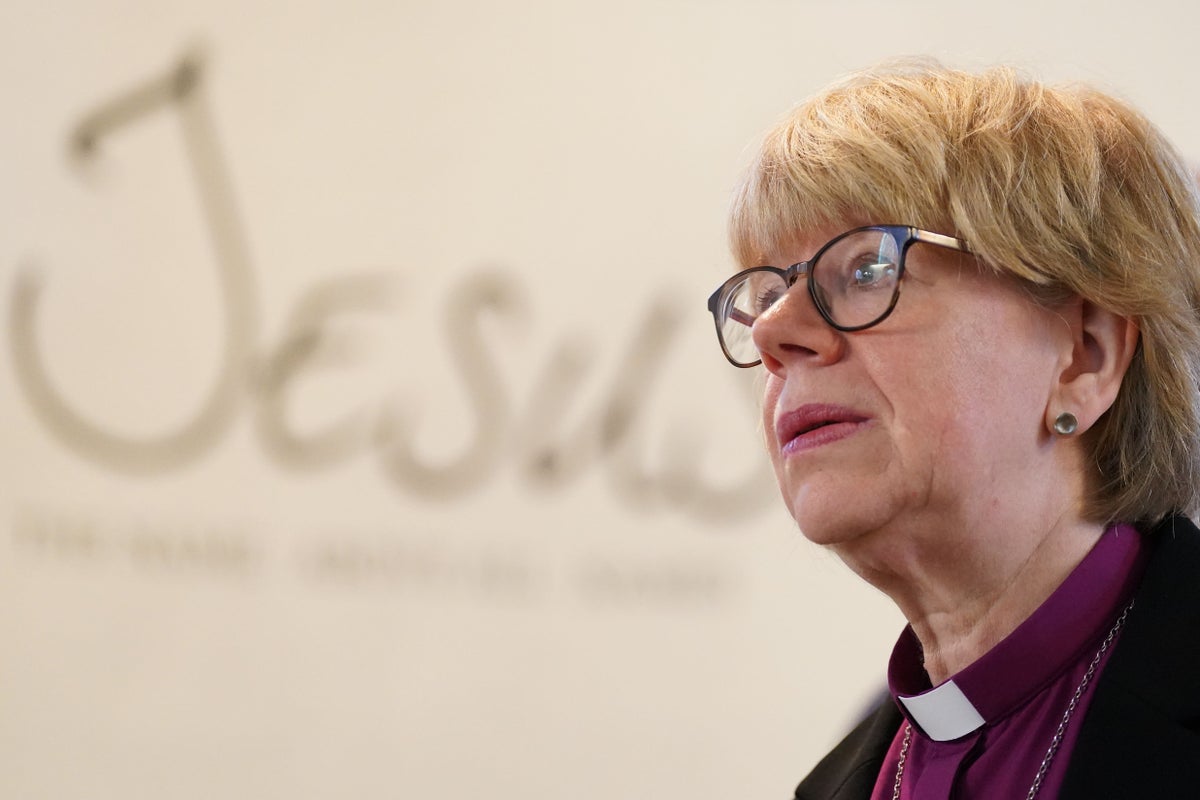
Dame Sarah Mullally is used to making history.
She was the youngest chief nursing officer in England, the first female bishop of London and is now the first woman to take the Church of England’s top ministry role.
As Archbishop of Canterbury, Dame Sarah will have to steer the Church through a challenging time – fraught with issues over safeguarding scandals and how they are handled, divisions over blessings for same-sex couples, and service attendances which have not yet returned to pre-pandemic numbers.
While making history as the first woman in the role, she will be seen by many as a safe pair of hands given her extensive experience.
She was ordained in 2001 and left her government post as chief nursing officer at the Department of Health in 2004, taking up a full-time ministry in the London borough of Sutton.
She was made a Dame in 2005 in recognition of her outstanding contribution to nursing and midwifery.
When named bishop of London in 2017, she spoke about her different careers, saying she feels she has “always had one vocation: to follow Jesus Christ”.
She said at the time: “I am often asked what it has been like to have had two careers, first in the NHS and now in the Church.
“I prefer to think that I have always had one vocation: to follow Jesus Christ, to know him and to make him known, always seeking to live with compassion in the service of others, whether as a nurse, a priest, or a bishop.”
Her appointment at that time marked a sign of Church progress on women’s roles, having followed Libby Lane making history when she was consecrated as the first woman bishop in 2015.
While the Archbishop of Canterbury is automatically granted a seat in the House of Lords, Dame Sarah has had a place there since 2018 as a senior bishop.
She will have a vote on the assisted dying Bill for England and Wales that is currently being considered at Westminster.
A strong opponent, she has warned the Bill “fails in its central plank, that it delivers choice”.
She told a debate in the Lords last month that “choice is an illusion” and said she believed “no amendments to this Bill that can safeguard us completely from its negative effects”.
Dame Sarah is seen as progressive on the issue of same-sex blessings in the Church – a subject which has seen strongly competing opinions among Church members.
In 2023, after a vote to approve blessings, she described the result as a “moment of hope for the Church” but recognised that differences of opinion remained.
She said: “I know that what we have proposed as a way forward does not go nearly far enough for many but too far for others.”
On her own role in giving blessings, she said she “would have the conversation (with a couple), and there are certainly prayers within that suite (of prayers) that I would use”.
